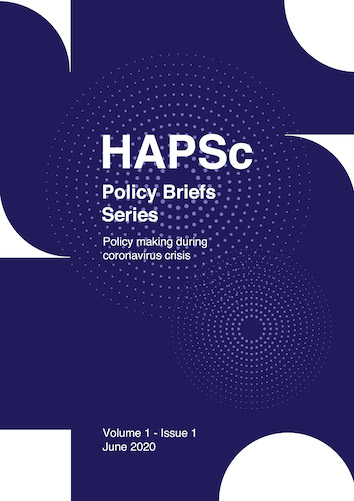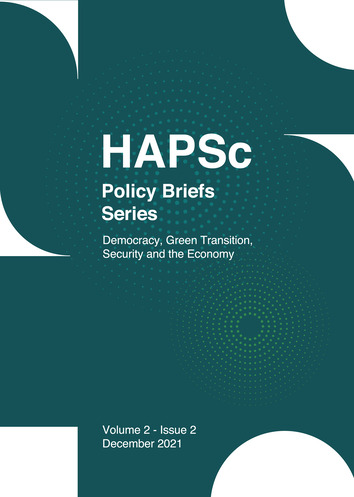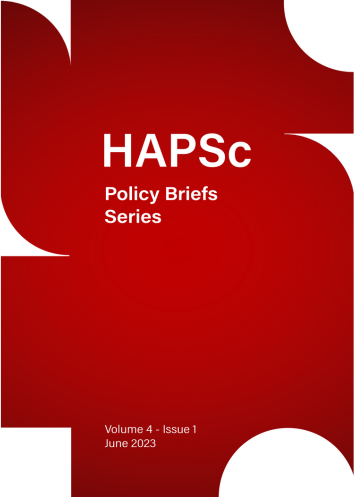AI transforming Healthcare Management during Covid-19 pandemic
Abstract
Article Details
- Come citare
-
Efthymiou, I.-P., Sidiropoulos, S., Kritas, D., Rapti, P., Vozikis, A., & Souliotis, K. (2020). AI transforming Healthcare Management during Covid-19 pandemic. HAPSc Policy Briefs Series, 1(1), 130–138. https://doi.org/10.12681/hapscpbs.24958
- Sezione
- Articles

TQuesto lavoro è fornito con la licenza Creative Commons Attribuzione 4.0 Internazionale.
Authors retain copyright and grant the journal right of first publication with the work simultaneously licensed under a Creative Commons Attribution License that allows others to share the work with an acknowledgement of the work's authorship and initial publication in this journal.





